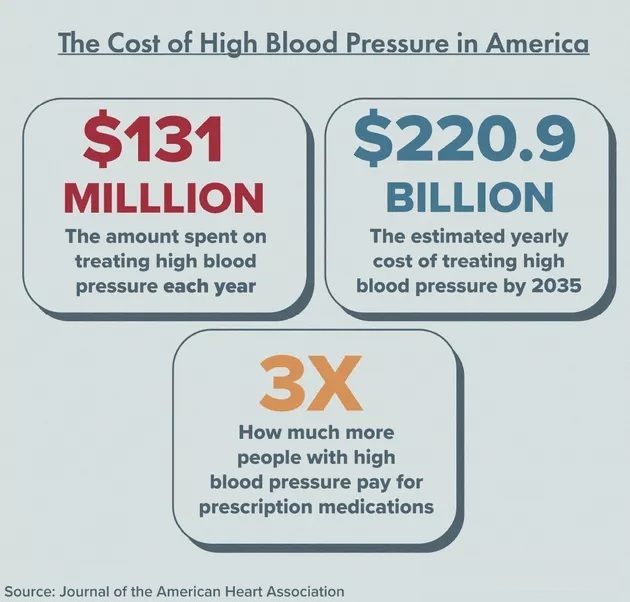What is High Blood Pressure?
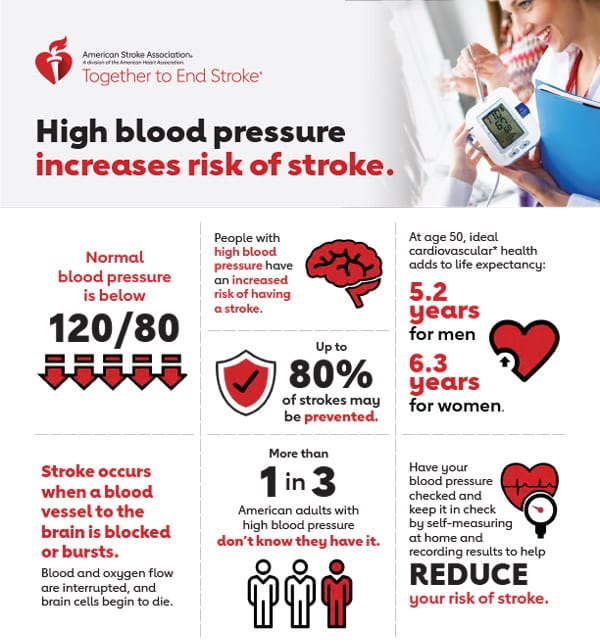
High blood pressure, or hypertension, is a leading risk factor for heart disease, stroke, and kidney failure in the United States. It's often called the "silent killer" because it typically shows no symptoms in its early stages—making early detection a challenge.
Today, nearly half of U.S. adults (48.1%)—about 120 million people—have hypertension. Despite its prevalence, more than 57 million Americans are unaware they have the condition, and many go untreated or undertreated, increasing their risk of life-threatening complications.
Hypertension disproportionately affects certain populations:
- Older adults: Nearly 70% of Americans aged 65+ have high blood pressure
- Black adults: Highest prevalence among racial groups at 56%
- Men: Slightly more affected than women (50% vs. 44%)
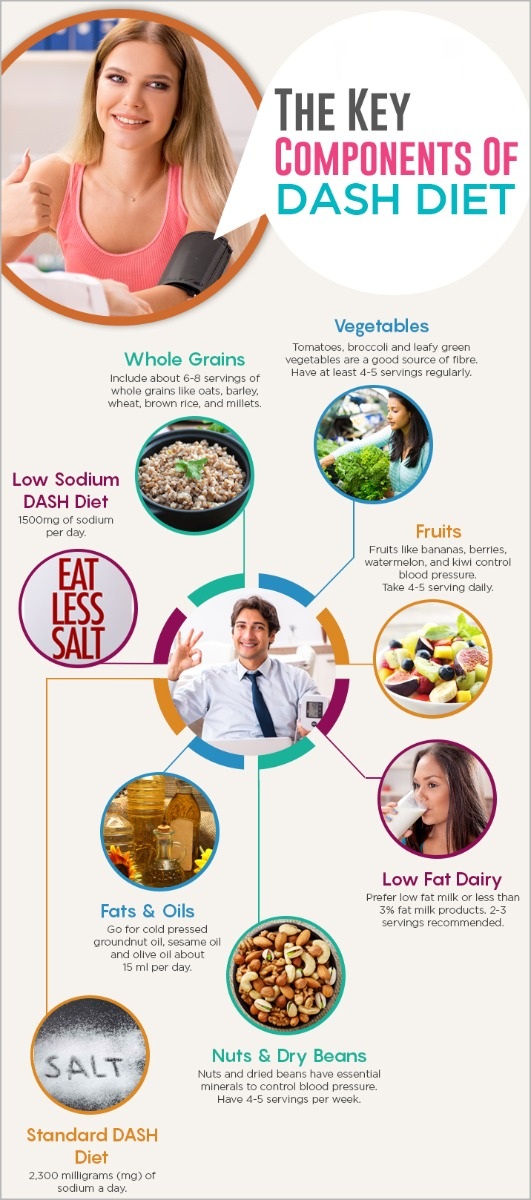
Key Risk Factors:
- Obesity — excess body weight strains the heart and blood vessels
- High sodium intake — most Americans consume far more salt than recommended, often from processed foods
- Sedentary lifestyle — lack of regular physical activity weakens cardiovascular health
- Chronic stress — prolonged stress can elevate blood pressure and trigger unhealthy coping behaviors
- Family history — genetics and shared lifestyle habits increase susceptibility
Symptoms and Diagnosis
- Often no symptoms in early stages
- Headaches
- Dizziness
- Blurred vision
- Shortness of breath
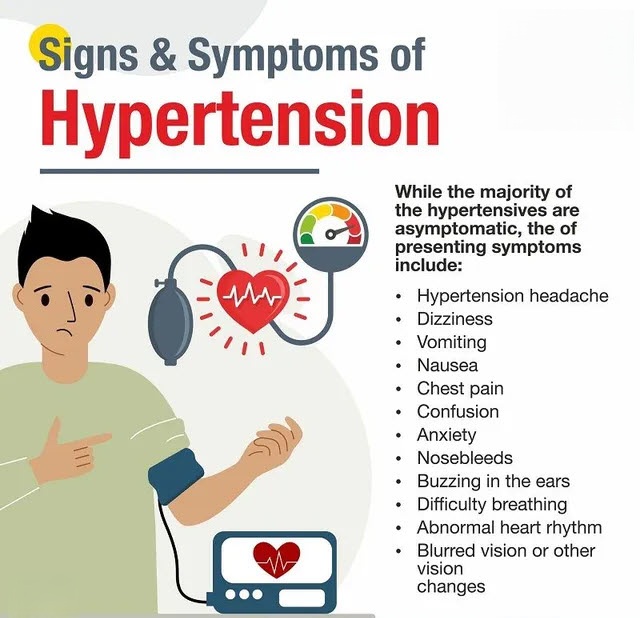
Prevention and Management
Key strategies include:
- Reducing salt intake
- Eating a balanced diet
- Regular physical activity
- Maintaining a healthy weight
- Managing stress
- Avoiding tobacco and excessive alcohol
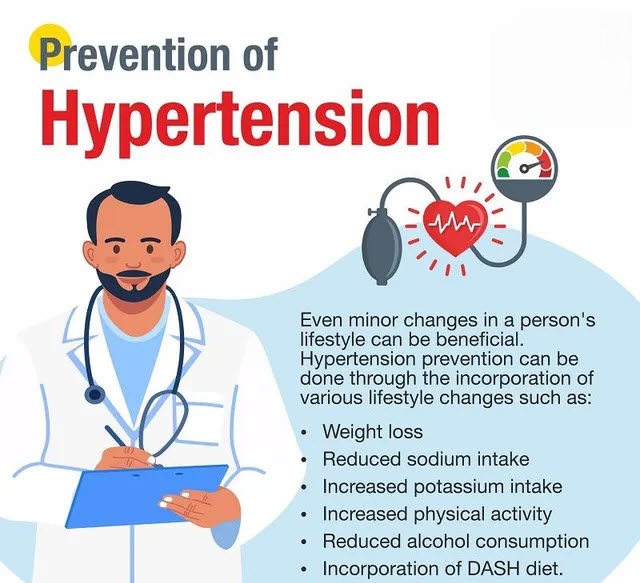
What My Clients Say
Sonja, 45 - Cleveland, OH
Brian, 39
Derek, 50
Videos on High Blood Pressure
High Blood Pressure in USA: Statistics and Challenges
According to the American Heart Association, nearly half of adults in the United States have high blood pressure, and many are unaware of their condition. The lack of awareness and screening programs means many people are unaware of their condition. Early detection and intervention are key to preventing complications.
